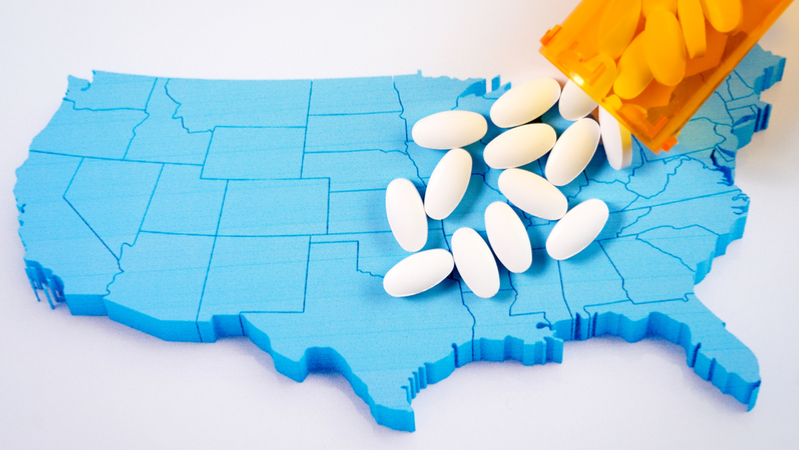
In the seven years since it was launched, the General Services Administration’s (GSA) Challenge.gov platform has demonstrated that crowdsourcing can be a winning approach to problem solving in government.
More than 740 challenges have been run in the Federal government since Challenge.gov went live in 2010. The site provides a listing of challenge and prize competitions, all of which are initiated by agencies across the Federal government. These problem-solving events include technical and scientific competitions in which agencies invite the public to help solve tough, mission-centric problems. To date, for the solvers, agencies have offered more than $250 million in prize money along with other valuable and unique incentive prizes.
The latest challenge facing the nation and government is a staggering one: the opioid epidemic. Each day more than 140 Americans die from drug overdoses, nearly 100 specifically due to opioids. More than 64,000 people died from opioid overdoses in 2016, according to the Centers for Disease Control and Prevention.
To generate innovative, data-driven solutions to the crisis, the Health and Human Services’ (HHS) Office of the Chief Technology Officer turned to crowdsourcing and Challenge.gov. The office put out a call in November through Challenge.gov for problem-solvers. More than 300 data scientists, programmers, coders, and public health experts responded.
Over the past four months a CTO team has been working with HHS and other Federal agencies, data stewards from private industry, and state and local governments to compile more than 70 data sets for a 24-hour coding challenge, called the HHS Opioid Codethon, which was staged on Dec. 7 in Washington.
More than 50 teams convened in HHS’s Great Hall for the codeathon, seeking to use the datasets to develop specific ways to address the epidemic along three separate tracks: improving access to effective treatment and recovery services, identifying at-risk populations and their underlying characteristics of opioid misuse or abuse, and predicting and analyzing the supply and movement of legal and illicit opioids.
The winning teams of coders in each category will receive $10,000 and get the opportunity to work with state and local health officials to test the viability and scalability of their opioid solutions.
Bruce Greenstein, HHS’s CTO, commented on the value of the outreach programs in combatting opioid abuse and other problems facing the Federal government in a recent blog post. “An important value of the Office of the CTO is the notion that we alone do not have all the answers. We look for input from a variety of stakeholders to develop solutions to solve problems,” he wrote.
The HHS codeathon isn’t the first crowdsourcing effort to address the opioid crisis through Challenge.gov. In September 2016, the Food and Drug Administration partnered with the Substance Abuse and Mental Health Services Administration (SAMHSA), a branch of HHS, on another app competition that looked for innovative ways to get life-saving medications to people experiencing an opioid overdose. A small startup company won the challenge with an app that uses mobile geospatial technology to connect overdose victims with carriers of Naloxone, a prescription medication that can reverse the effects of an overdose.
Prior to that competition, in 2015, SAMSHA sponsored a hackathon to create apps that would help prevent opioid overdoses. The winning app helps people build a care network. A follow-up challenge, in March 2016, sought to help patients recovering from opioid addiction. The winner created a smartphone app that lets patients track their recovery through self-reporting and connect with others in recovery through discussion forums.
According to GSA’s blog team, “Crowdsourcing is the government’s way of saying, ‘We don’t have all the answers.’ It allows the government to tap into the American public’s creativity, fresh perspective, and diverse skillsets. It places public servants in touch with innovators and ideas they otherwise may never have found. And it allows citizens to play a direct role in their government and contribute to the greater good.”
